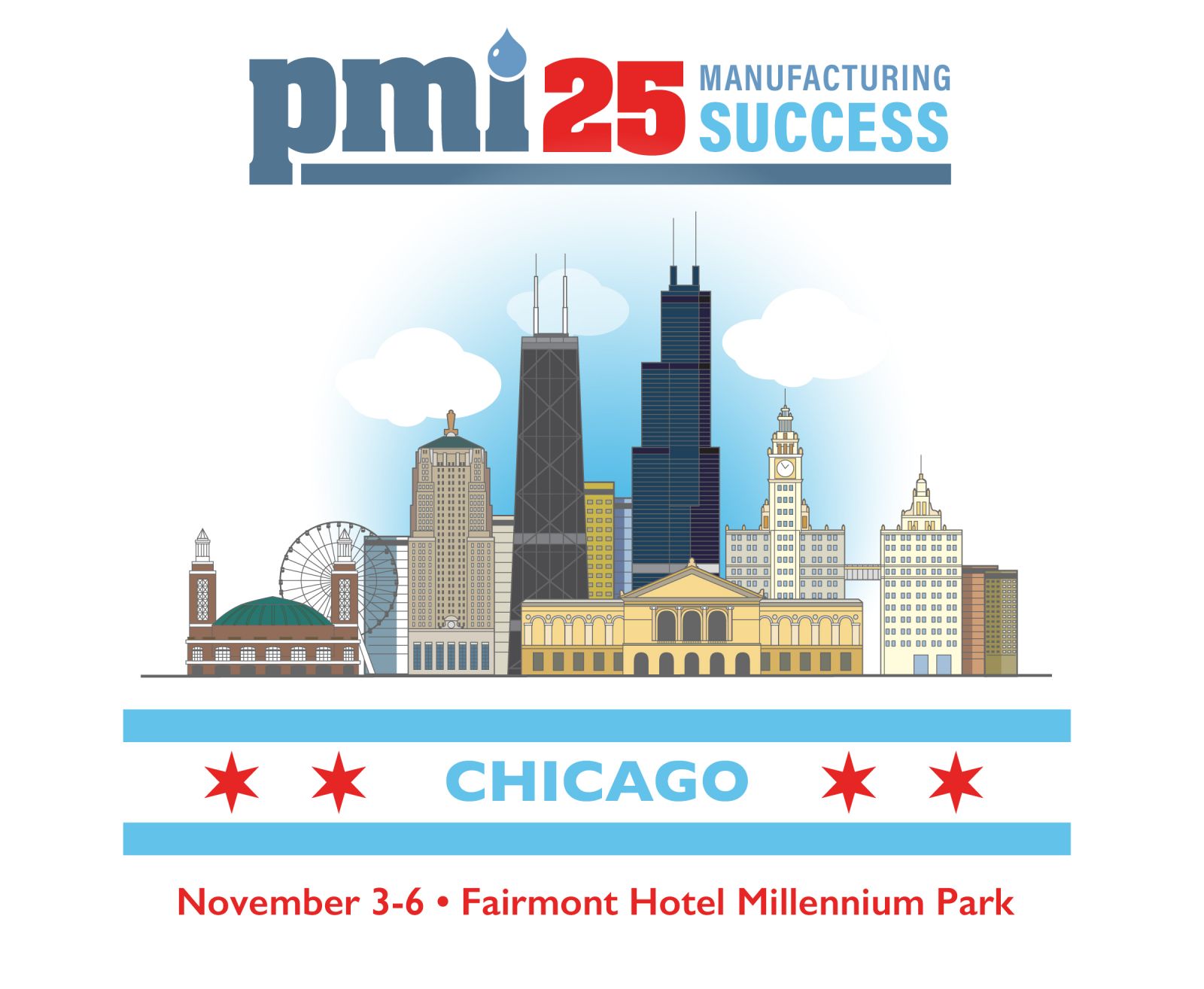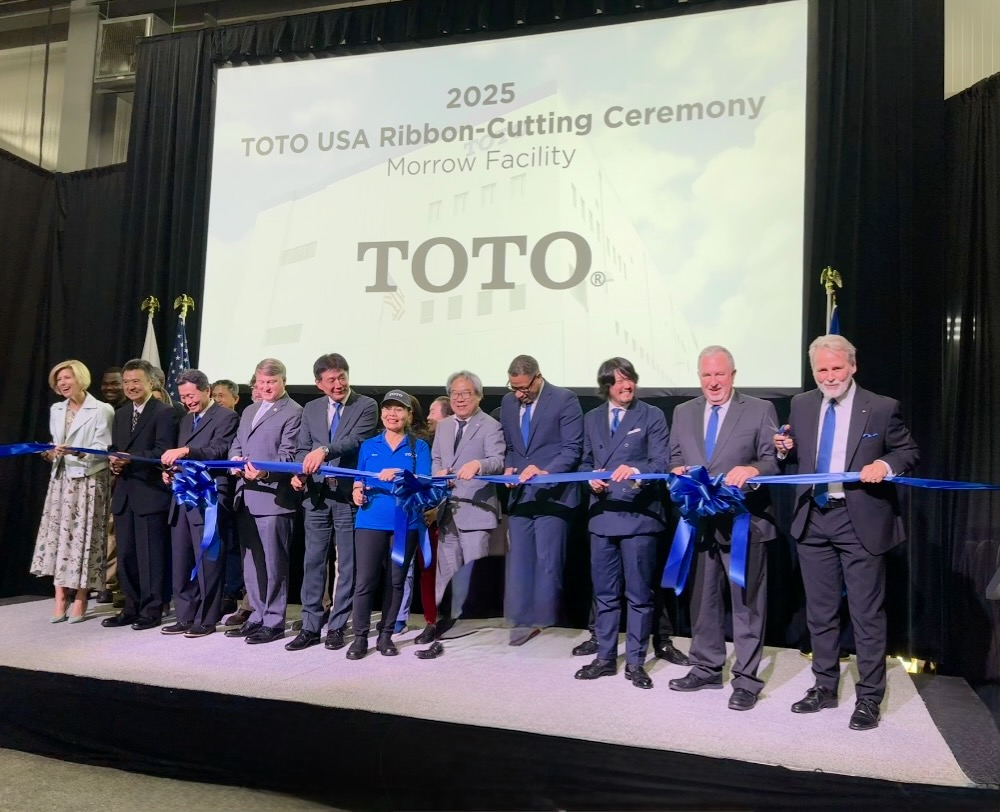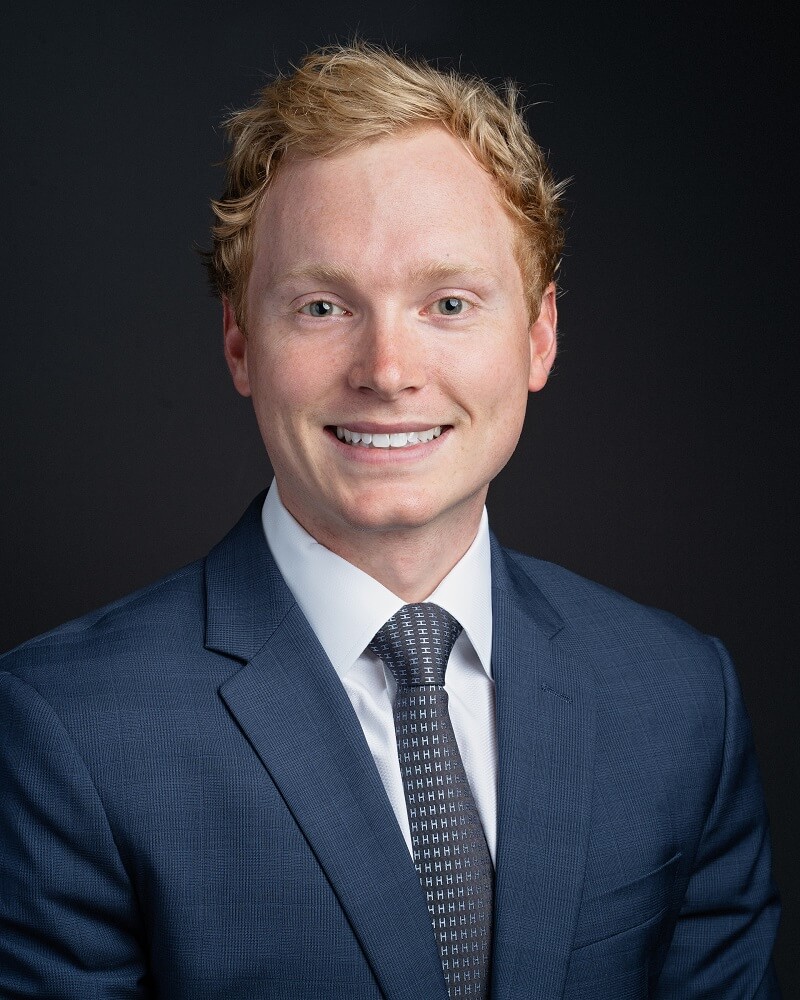September 2025
Volunteerism is the Lifeblood of PMI
 By Belinda Wise, PMI Board of Directors President, Neoperl US
By Belinda Wise, PMI Board of Directors President, Neoperl US
Volunteerism has a long and proud history. Volunteers have built and operated hospitals, religious institutions, fire departments, armies, social movements, and non-profit organizations. By banding together, volunteers have saved lives, improved social conditions, and created nations. One such volunteer organization, our association—Plumbing Manufacturers International—represents members whose products achieve significant water savings and contribute to safe, responsible plumbing and sanitation systems.
Not only do PMI’s members join our association voluntarily; PMI also relies on volunteers from member companies to guide its operations. Without these volunteers, PMI would be a boat without a rudder in a sea of technical and regulatory activity not always beneficial to the plumbing manufacturing industry.
As PMI and its volunteer members advocate for the industry, they also place their volunteer efforts in service to people in need. Each year at the Kitchen and Bath Industry Show (KBIS), the non-profit organization World Vision’s Crystal Vision Awards Breakfast celebrates the industry’s contribution of building materials for the construction of homes and facilities serving vulnerable families and communities. Volunteers from several PMI member companies also contribute their time to this effort.
I wanted to learn more about how PMI member companies participate within their local communities, so I turned to my fellow board members and was blown away with the response. Here are some amazing examples of volunteer work being done:
- GF Building Flow Solutions Americas and its employees support more than 100 community organizations including Habitat for Humanity; International Water, Sanitation, and Hygiene Foundation; Water Mission; Minnesota Zoo; Women in Plumbing and Piping; and many more through volunteer hours and charitable donations. The company is a national sponsor of Habitat for Humanity, annually donating more than $100,000 worth of Uponor products. And they offer their full-time employees 24 hours of paid volunteer time off each year to give back to the community, which totals more than 2,000 volunteer hours yearly.
- Lavelle supports Burlington (Wisconsin) Area School District activities, Transitional Living Center (TLC) shelter for women and children in crisis, United Way, Haylofters Theater, Burlington Catholic School Musical, Breakfast on the Farm, and Love Inc. dedicated to serving disadvantaged families.
- Delta Faucet Company typically builds at least one home annually for the Indianapolis Habitat for Humanity, and they are in the midst of a new home build right now. Delta has built and donated more than 20 homes over the years.
- The Neoperl US team is committed to supporting local charities in Waterbury, Connecticut, where they are headquartered. Twice a year the team has a food drive with the company matching what is raised. Neoperl contributes to Operation Fuel, helping low-income households with heating expenses, and Campership Program, a summer camp for low-income kids. At Christmas, Neoperl does a “giving tree” for Safe Haven in support of domestic violence victims. The company maintains a discretionary fund for employees who have a cause, for example, sponsoring a local cheerleading squad competing in a national tournament.
- At LIXIL, thousands of employees around the world take part in LIXIL Community Day, dedicating time to support local organizations through activities like environmental cleanups, food drives, and housing assistance. It’s a shared effort across countries and cultures, reflecting a belief that businesses should play a positive role in the communities where their employees live and work. In the United States, LIXIL partners with Tools & Tiaras, a nonprofit that introduces girls to careers in the skilled trades. Through summer camps and hands-on workshops at its Water Experience Center, LIXIL helps build awareness, confidence and interest in the plumbing and construction industries.
- Kohler donated $8.28 million in cash and in kind in 2024, impacting 474,000 lives. Donations supported community health and well-being, as well as education and scholarships, environmental conservation, and the arts. In 2024, 92% of Kohler locations with more than 100 associates participated in local community engagement activities. Associates self-reported 6,705 volunteer hours in the U.S. For the last 20 years, Kohler has partnered with Habitat for Humanity, and the company’s shower trailers have provided 2,482 showers—restoring hygiene, opportunity and dignity with help from partners like ShowerUp and Street Angels.
Did I mention amazing? And this was after only checking in with my fellow board members so I could share examples and shed light on the wonderful work being done. The list would be pages long if we checked in with all our members, and there are more examples in the 2025 PMI Annual Report.
At the PMI25 Manufacturing Success Conference, Nov. 3-6 in Chicago, attendees will be contributing further by participating in a group activity of assembling hygiene kits for children and other individuals recovering from natural disasters, poverty, homelessness, abuse, trafficking, addiction, or other traumatizing events in partnership with a World Vision effort. We’re looking for a PMI member company to sponsor this outstanding event; the sponsor’s name and logo will be included on the note cards with inspiring messages included with the kits, which will then be distributed by World Vision.
Of course, we can’t forget the hard work of the many volunteers who contribute to the PMI Technical Committee, Advocacy/Government Affairs Committee, and Board of Directors. We’re always looking for new leaders, so please nominate yourself or others for a committee (tinyurl.com/54vxabp8) or board (tinyurl.com/5n9x68y2) role.
In 2024, PMI recognized three volunteers through the PMI Ambassador Award (Lars Christensen, BLANCO), PMI President’s Award (C.J. Lagan, LIXIL), and Paul Patton PMI Manufacturing Success Conference Award (Jake MacDonald, BLANCO). We invite your suggestions for worthy recipients for the 2025 awards—let Kerry, any board member or me know what you think!
Yes, history shows that volunteerism is the lifeblood of PMI; it’s what makes us what we are today. Through your dedication, we can do great things—save water, prevent illness, build healthy communities, create new scientific knowledge, and more. Come to the PMI25 conference in Chicago to learn the latest on our exciting industry and how you can help to further both your career and our industry’s goals. And be proud every day of the fact that you are part of a very giving community in an industry that positively impacts the world around us.
Prepare to Report to Canada’s Federal Plastics Registry
 By Ray Valek, PMI Communications Team, Valek and Co.
By Ray Valek, PMI Communications Team, Valek and Co.
Talia Gordner, partner, McMillan LLP, presented “An Insider’s Look—Canada’s Federal Plastics Registry” during a webinar for Plumbing Manufacturers International members whose products are manufactured or distributed for sale in Canada.
Gordner explained that reporting obligations stem from the Canada-wide Action Plan on Zero Plastic Waste, which is focused on reducing plastic pollution, creating economic opportunities to recover the value of used plastics, and achieving Canada’s goal of zero plastic waste.
“It’s more of an aspirational than a legally mandated goal, but with the idea that the provinces, federal government, and territories will eventually develop legislation that aligns with this strategy,” she explained. “The idea here is to have less things end up in a landfill and more things being recycled or reused for a secondary purpose.”
So far, Canada has enacted a federal single-use plastics ban and established the Federal Plastics Registry to obtain information on the collection, disposal, reuse, and recycling of plastics placed into the Canadian market. “The purpose of collecting this information is to inform regulation,” Gordner explained. “If you don’t know where the plastic is, what industries are producing it, and how it ends up in the waste stream and at what stage of its life, you can’t regulate or measure where you are on your target to get to zero plastic waste.”
Plastic packaging and construction plastics among the reportables
Among the reporting obligation categories most likely to affect plumbing manufacturers are plastic packaging and construction plastics, Gordner said. These categories include plastics used for packaging, transport or shipping, as well as products including plumbing fixtures and fittings, piping and fittings, and accessories containing plastics used with these products.
PMI member companies must report when they meet the definition of producers of materials containing plastics, or if they are generators of plastic packaging or product waste within Canadian facilities. “A producer may be a manufacturer, importer, brand owner, distributor or supplier,” she explained. “Who is profiting from the sale of these products in Canada? That’s the company that’s going to be responsible.”
If a PMI company has no Canadian facilities, sales offices or other physical presence, they are not obligated to report. In this case, the importer will usually have the responsibility for reporting, Gordner explained.
Sept. 25, 2025, is first reporting due date
Reporting for calendar year 2024 is due Sept. 29, 2025, for plastic packaging, single-use or disposable plastic products, and electronic and electrical equipment categories that are likely to end up in the residential waste stream. Reporting for calendar year 2025 for all categories, including construction plastics, will be due Sept. 29, 2026, regardless of the waste stream in which the products are likely to end up. A small business exemption applies to producer and generator requirements when the total produced obligated plastic material or generated plastic waste is below 1,000 kg per calendar year, she explained.
To prepare to meet the reporting deadlines, Gordner encouraged PMI members to determine what packaging and product materials are subject to registry reporting requirements and to begin gathering data on obligated plastics used, supplied, manufactured, or imported to Canada. PMI members should determine plastic resin types, quantities by weight, what provinces receive materials, and where it ends up at end-of-life, she said.
Gordner also advised PMI members to open lines of communication with suppliers who have information about the kinds of plastics in their products. In some instances, suppliers may be obligated to provide this information under their contractual agreements with PMI members.
She also encouraged PMI members to engage their in-house legal counsel or Canadian counsel specializing in environmental law and compliance issues, adding that she also can help members better understand their business’ specific obligations under the registry.
With more guidance from Environment Canada to come, she encouraged members to read these bulletins:
Plan for the Ban: Canada’s Federal Plastics Registry – Let’s Talk Reporting (tinyurl.com/j42utnjb)
Plan for the Ban – Construction Industry Targeted in Canada’s Federal Plastics Registry (tinyurl.com/bd3zxusw)
PMI members can watch Gordner’s presentation on-demand and view her slides and contact information under Technical/Regulatory at tinyurl.com/yhpbwxyy.
This article is not intended as legal advice. Companies should seek legal counsel specific to their needs and situation.
Economic Impact Sparks Urgency to Fill Plumber Shortage
 By Judy Wohlt, PMI Communications Team, Valek and Co.
By Judy Wohlt, PMI Communications Team, Valek and Co.
The shortage of more than 500,000 plumbers in the United States is costing the economy more than $38 billion annually and increasing expenses for builders, reports a study commissioned by Plumbing Manufacturers International member LIXIL. Filling this gap will require rekindled vocational education programs, expanded apprenticeships, and more collaboration among the plumbing industry, policymakers and educators.
The study, “Blocked Pipes: The Economic Consequence of Skilled Worker Shortages,” (tinyurl.com/bdhx66kc) by John Dunham & Associates, quantifies how the plumber shortage is driving up costs and straining industries across the economy. The PMI Board of Directors has committed to investing in another study that will complement LIXIL’s report, aiming to guide PMI’s workforce development and advocacy strategies. PMI will again work with John Dunham & Associates to update the association’s 2023 Plumbing Manufacturing Industry Economic Impact Study. The new study will add 2025 plumber and plumbing contractor economic impact data broken down by nation, state, congressional district, and state house and senate districts.
“We face an urgent challenge and an exciting opportunity: closing today’s skills gap while preparing the plumber of the future,” said Troy Benavidez, PMI Board of Directors member and LIXIL’s leader of international government relations, policy and strategic partnerships. “As manufacturers bring innovative products and solutions to market, plumbers will need a broader skill set. Through training initiatives like our TradeUp program, we can highlight the importance of plumbing to young people and help current professionals expand their expertise.”
Federal and state lawmakers commit to supporting the trades
Some states have boosted efforts to support the plumbing and other skilled trades with programs and funding. The federal government has committed to expanding registered apprenticeships and investing in workforce development.
PMI discussed the importance of strengthening the plumbing trade with policymakers. Matthew Windrum, PMI director of state government affairs, policy and advocacy, met with Oklahoma Gov. Kevin Stitt and Maryland Gov. Wes Moore’s team at a recent National Governors Association (NGA) meeting.
Stitt and Moore have introduced “Reigniting the American Dream” as the 2025-26 NGA chair’s initiative, which invites every governor to invest in infrastructure that supports growth and connects people to in-demand careers. To jumpstart this work, Stitt committed an initial $19 million in Oklahoma to expand local programs, align public and private resources around measurable workforce outcomes, and help Tulsans access jobs in manufacturing, air mobility, and healthcare.
Massachusetts Gov. Maura Healey’s administration recently awarded $13.4 million in Career Technical Initiative and planning grants to 21 organizations. Partnering with more than 180 employers across the state, the initiative will train 1,641 people for careers in the trades, construction and manufacturing, stated a Mass.gov news release.
In April, President Donald Trump signed an executive order titled “Preparing Americans for High-Paying Skilled Trade Jobs of the Future.” The order states that federal funding will be invested in workforce development so American workers will be ready to fill the growing demand for skilled trades. The order directs the Departments of Labor, Education and Commerce to “reach and surpass 1 million new active apprentices.” The Department of Labor announced in June that it would award almost $84 million in grants to 50 states and territories to expand apprenticeships.
However, critics are saying the president’s current 2026 budget proposal doesn’t indicate any significant new investments in apprenticeships and reduces overall spending for workforce development. The budget proposes consolidating 11 workforce programs into one funding stream for states called “Make America Skilled Again” with $2.9 billion for MASA—a 24% cut to current funding levels, reported a Jobs for the Future article.
Interest grows in trade jobs
Interest in plumbing and other trades is rising—as many students have become discouraged by the high cost of a four-year degree and the uncertainty of finding a job in their field of study.
A recent survey conducted by ResumeBuilder.com found that 42% of Generation Z adults are working in or pursuing skilled trade jobs to avoid student loan debt that sometimes results from getting a four-year college degree.
However, vocational schools are turning students away in some cases. All vocational schools in Pennsylvania are at capacity and can’t accept new students, said Benavidez, who has been working with the state’s vocational school administrator. “Let’s work on ways to make it easier for people to become plumbers. Maybe that means getting every vocational school in the country to have a plumbing program,” he added.
A Can’t-Miss Program Awaits You at PMI25
 By Judy Wohlt, PMI Communications Team, Valek and Co.
By Judy Wohlt, PMI Communications Team, Valek and Co.
Learn the latest on packaging laws, Federal Communication Commission (FCC) rules for “smart” plumbing products, the future of water in manufacturing, how to build mental resilience, and much more by attending the can’t-miss PMI25 Manufacturing Success Conference, Nov. 3-6 in Chicago. And be sure to nominate one of your inspiring, hard-working colleagues for the Paul Patton Award, which grants the recipient complementary PMI25 registration and a spot in the PMI Inspiring Leaders Program.
You’ll also hear updates from experts on the critical topics of trade and tariffs, the economy, counterfeit plumbing products, PFAS, water innovations and infrastructure, premise plumbing research, implications of AI, legislative issues, and more.
Get a snapshot of the EPR and packaging policy landscape
Rob Keith, membership and policy director at the American Institute for Packaging and the Environment (AMERIPEN), will cover the current state of extended producer responsibility (EPR) laws, focusing on packaging laws that have been passed since 2021 and a compliance update.
Discover what companies can do to determine their liability under EPR laws, how they can engage in pending legislation to influence outcomes, and how policy conversations on packaging differ at the state and federal levels.
Adding to the EPR discussion will be Lowell Huffman, director of channel partnerships with rePurpose Global, who will share packaging EPR best practices for compliance in the U.S. His presentation will involve upcoming key deadlines in California and lessons from the packaging regulation rollouts in Colorado and Oregon.
Avoid compliance missteps involving the FCC’s authorization rules for ‘smart’ products
Evaluating the FCC’s equipment authorization rules early in the design and manufacturing process can avoid potentially costly enforcement actions and do-overs for new “smart” or “connected” water monitoring systems and toilets. Jennifer Wainwright, senior associate, Kelley Drye & Warren LLP, will deliver a practical overview of the FCC’s equipment authorization rules and explain how to avoid compliance missteps during her presentation on “FCC Equipment Authorization: What Manufacturers Need to Know.”
Become familiar with basic questions to ask to determine whether the equipment authorization framework imposes obligations that must be met before products can be imported or marketed. Understand why the framework exists, what types of products are covered, and the primary obligations to secure and maintain proper equipment authorization. Also discover what to know when designing, building and marketing new products to avoid compliance missteps and burdensome enforcement actions.
Learn how to navigate the future of water in manufacturing
Alaina Harkness, CEO of Current, the Chicago-based water innovation hub, will join Joel Brammeier, president and CEO of the Alliance for the Great Lakes, to discuss how rising water costs, aging infrastructure, and uncertain water supply in other parts of the country have the Great Lakes region emerging as a strategic hub for water innovation and resilience. During their presentation, “Navigating the Future of Water in Manufacturing,” Harkness and Brammeier will explore the economics, infrastructure, and governance of water—and what it means for industry and communities across the country.
PMI Inspiring Leaders Program to focus on building mental resilience
Don’t miss the PMI Inspiring Leaders Program on Nov. 3, where Stephanie Klein, founder of Mindfire Mastery, will teach participants how to build mental resilience by shifting from burnout to balance, shine with authentic brilliance, and optimize relationships and well-being.
Her journey to starting Mindfire Mastery and becoming an executive coach, author and creator of the Mindful Leadership Program for the University of Chicago’s Booth School of Business involved overcoming several tribulations. For example, as a new chief marketing officer in 2008, she led her global team through the financial crisis. Several years later—after being diagnosed with life-threatening breast cancer—she realized mindfulness, self-compassion and balance were critical for her to heal.
After another challenging time when she had a leadership role during an acquisition, Klein realized she was ready for a change. Her story of leaving the C-suite was published in the bestselling anthology, “Turning Point Moments: True Inspirational Stories of Creating a Life that Works for You.” She also authored the book “Shining Through Disruption: 9 Mindsets for Igniting Growth to Become an Authentic Leader.”
The all-day program will take place at the inspiring, colorful and playful Catalyst Ranch in Chicago’s West Loop. Housed in an 1880s industrial building previously used for meatpacking and sausage making, this meeting space is designed to encourage creative thinking and new ideas.
Want to elevate your brand?
Be a PMI25 Platinum, Gold, Silver or Event Sponsor. NEW IN 2025—Exclusive event sponsorship opportunity: support underserved communities through a hands-on volunteer event featuring your logo on every World Vision care kit assembled at the conference and distributed to people in need.
Bundle your registration with PMI25 and save (bit.ly/3UnYc5E). Learn more about PMI25 sponsorship (tinyurl.com/4b4up5u8).
Viega and TOTO Expand U.S. Manufacturing Operations
 By Judy Wohlt, PMI Communications Team, Valek and Co.
By Judy Wohlt, PMI Communications Team, Valek and Co.
Plumbing Manufacturers International members Viega and TOTO USA recently opened new and expanded facilities in the United States that champion sustainability, domestic production, and job creation.
Viega’s new facility is operationally carbon-neutral
With a focus on supporting the environment, customers, and the local community, Viega began operating a new operationally carbon-neutral 244,000-square-foot facility in Mantua, Ohio, in July. The facility, which will create 68 new jobs in the first five years, manufactures ProPress products including 90-degree elbows, stop/regular couplings, and reduced couplings.
The plant’s goal is to achieve LEED Gold certification by October 2025 while being operationally carbon neutral, explained Marki Huston, Viega North America CEO. “In the U.S., there are fewer than 30 facilities like the one we are building that have achieved this goal,” she added.
To become carbon neutral, Viega’s Mantua operations use all electric, green-energy sources and have installed electrical metering and monitoring to ensure they use energy most efficiently. “This has meant we have had to work with our machine suppliers for modifications to equipment and altered building systems to accommodate,” Huston emphasized.
As a fifth-generation, family-owned company, Viega pursues a long-term sustainability perspective, she said. The company’s purpose of “Building the lifelines for the buildings of tomorrow” reflects this position. “Sustainable thinking and action form the foundation, as long-term business success depends on aligning economic, ecological and social objectives,” Huston stated.
In addition, Viega is committed to supporting the trades with U.S.-manufactured products. “Quality being a priority, we can maintain our standards with domestic production. Beyond quality, the community and economic impact of domestic production we strongly believe is an important piece of who Viega is and how we also support the long-term stability of our industry and customers,” she explained.
“The need for press-fitting technology will increase as the construction industry grows and our infrastructure in North America ages and needs to be repaired,” Huston noted. “Viega is committed to supporting this growth with a best-in-class quality product, continued innovation to solve for the needs of our customers, expanded Viega Seminar and Experience Centers for support of the training of our customers, and significant investment in domestic manufacturing.”
TOTO celebrates newly expanded Morrow, Georgia, plant
On August 22, TOTO USA celebrated the opening of its $224 million manufacturing facility in Morrow, Georgia—an expansion that adds about 161,500 square feet of advanced manufacturing space, sustains 420 local jobs, and produces high-end one-piece toilets. Production will begin in the fall of 2025.
Built with sustainability at its core, the new facility uses energy-efficient manufacturing systems, localized production that reduces shipping distances and lowers transportation-related carbon emissions, and water-conserving technologies integrated into operations, reported a TOTO news release. In 2027, the company plans to install new kilns designed with advanced insulation, convection heating, and precise temperature control; these kilns are expected to reduce carbon emissions by about 23% compared to current models.
The new Morrow facility uses next-generation manufacturing technology, designed to enhance quality, precision, and operational efficiency, explained the news release. The facility also features a tank bonding robot—a first for any TOTO Group plant. The robot, which was jointly developed with an equipment manufacturer, precisely positions and bonds tanks to bowls for one-piece toilets, boosting quality and productivity. In addition, 34 advanced robots streamline processes from molding to finishing.
Luxury one-piece toilets, a strategic product for the Americas market, were previously sourced primarily from TOTO Global Group plants in Asia—often facing extended lead times. Localized production now ensures timely delivery, strengthens TOTO’s North American supply chain, and supports the company’s growth strategy across the Americas, the news release stated.
PMI Market Outlook LIVE Brings Data to Economic Discussion
 By Ray Valek, PMI Communications Team, Valek and Co.
By Ray Valek, PMI Communications Team, Valek and Co.
ITR Economics’ Connor Lokar broke through the media noise to provide Plumbing Manufacturers International members a data-driven view of economic trends during the recent PMI Market Outlook LIVE.
Uncertainty about the economy, while still high, is beginning to recede and business conditions are stabilizing, Lokar said. “The world did not end as it was hyped in the media with the initial implementation of the tariffs,” he explained. “And folks are realizing that … the sun is still shining, I still have my job, my business is still running, and it’s time to move on with our lives.”
The overall 2025 economy is more akin to 2018, which was an economically healthy year, than pandemic-affected 2020. “Some damage was certainly done (by the tariffs), but it was not fatal or immediately catastrophic,” he stated.
The U.S. remains world’s leading economy
In comparison with other nations, the United States remains the number-one economic powerhouse, accounting for 26.4% of the world’s gross domestic product. And despite the tariffs, the U.S. remains the number-one destination of direct foreign investment, and imports are up at a double-digit percentage for now, Lokar said. Meanwhile, in China, imports during the last quarter were down 22% among other significant economic challenges compounded by demographic decline, although Lokar surmised Chinese products are probably still getting “two-stepped” into the U.S. market by going through intermediate countries first.
“When we look at the global market overall, there’s nowhere that you want to be rather than the United States,” Lokar said. While noting the high growth occurring in India, Lokar emphasized that “India is a market that we look at favorably as we start to broaden our scope outside of the U.S., and our advice continues to be to diversify outside of China to every extent that you possibly can.”
Inflation will continue to heat up through the rest of 2025 and 2026, with tariffs, including ones on copper, creating supply chain uncertainty. This inflation will prevent a meaningful interest rate decline from occurring this year, Lokar explained. “Make sure you have a strategy for dealing with an inflationary environment to ensure that you continue to operate and sell your products,” he advised.
Single family housing in decline until 2026
With discretionary income getting squeezed by inflation, single family housing starts will likely remain in decline until 2026. There is a downside risk to plumbing fixtures due to this decline. But Lokar expects the growth to come back. “We still feel good about next year,” he stated. But for now, “tariffs are affecting a number of inputs into the building process, plumbing fixtures included, that are exacerbating a pre-existing affordability issue caused by high mortgage rates and a market short of inventory that buyers can afford,” he explained. Countering the single-family housing trend are better outcomes for multifamily and certain segments of commercial construction, particularly health care and education.
To maximize competitive advantages, Lokar encouraged PMI members to digitize and invest in artificial intelligence. “And as we think about what’s left of this decade, we have to maximize the growth that’s going to come in 2026, 2027, 2028 and 2029 because we know that the sun is setting on the potential growth in this cycle,” with ITR’s 2030 Great Depression outlook that is still on track, due to a debt and demographic crisis, he said. “So, we need to make sure that we are being aggressive in the next three to four years to maximize that before we get into that painful part of the cycle.”
During the question-and-answer session, Lokar was asked if the recently passed federal reconciliation bill changed ITR’s forecast. “I would say no,” he replied, adding that the continuation of the tax cuts slightly removed some uncertainty. “However, it’s not anything that’s making us revise our forecasts by any means. From a high-level perspective, the spending and deficit projections don’t change our pre-existing expectation that the government was going to continue to spend more money than it brings in and exacerbate long-term issues.”
Lokar also said he didn’t expect potential changes to federal flow rate standards to have a significant impact. “Maybe on the margins it could create a little bit of new market demand, but I don’t think it creates organically new demand from a total market perspective,” he stated.
PMI members can watch Lokar’s presentation on-demand and download his slides under Market Outlook/Economic Reports at tinyurl.com/yhpbwxyy.


